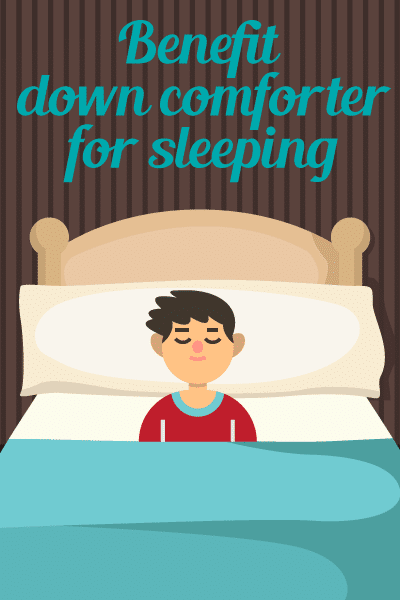Meta Description:
Sleep and relaxation are extremely important and the advantages of good sleep are much more than any of us realize. Read on to understand why good sleep is so crucial.
In today’s fast-paced, stress-filled world where you are working throughout the day – at the office, at home, bringing up your kids and also handling a social life, 24 hours are not enough. And, in such a scenario, research reveals that sleep is extremely important for the body to remain healthy along with eating, drinking and breathing. In fact, sleep impacts almost every aspect of our daily lives and often, we don’t really realize the importance of sleep. And, despite being the key to healthy living, we still don’t get sufficient sleep due to our busy lives.
Getting good sleep and relaxation are fundamental necessities that are as important for health as proper nutrition and exercise. And, if you don’t get enough of sleep and rest, over time, it may cause many problems such as being fatigued and tired, inability to concentrate, obesity, heart disease, diabetes, reduced productivity at work, being impatient with others and problems in relationships.
How Much Sleep Is Required?
There is no specific magic number of how much of sleep our body requires and people of different age groups need different amounts of sleep. Also, sleep needs of individuals vary, while for some people 6-7 hours are sufficient, others may require a good 9 hours to feel completely rested. Research states that most people require around 7-8 hours of sleep.
On basis of age categories, the National Sleep Foundation recommends the sleep requirements as below:
- New-Borns (0-3 Months): 14-17 hours
- Infants (4-11 Months): 12-15 hours
- Toddlers (1-2 Years): 11-14 hours
- Pre-Schoolers (3-5 Years): 10-13 hours
- Children (6-13 Years): 9-11 hours
- Teenagers (14-17 Years): 8-10 hours
- Young Adults (18-25 Years): 7-9 hours
- Adults (24-64 Years): 7-9 hours
- Older Adults (65+ Years): 7-8 hours
Studies reveal that people who get a sufficient amount of sleep regularly are healthier and live longer than people who sleep fewer or more hours at night.
Why Do You Need Adequate Sleep?
Widespread research on the effects of sleep show that it plays a very important role in promoting health, emotional well-being and longevity. It also shows why you feel much better, your emotions are stronger and thoughts clearer when you get good restful sleep.
Advantages of Sleep
Here are some of the advantages of sleep and good sleep can improve the length and quality of your life.
Helps to Repair Your Body
When you sleep, your body produces extra protein that strengthens the body’s ability to stay healthy and fight infections better. The protein molecules help the immune system to heal your body at the cellular level when you have been exposed to bacteria, pollutants or when you’re stressed.
Helps to Keep Your Heart Healthy
Sleeping well helps to reduce stress levels and also inflammation in the body. High levels of inflammation in the body are usually associated with cardiovascular disease, heart attack and stroke. Good sleep also helps to keep the cholesterol levels and blood pressure in control, which play a very important role in cardiovascular diseases.
Helps to Reduce Stress Levels
Good sleep can help to lower the stress hormones in the body, which are caused due to the fast-paced and hectic lifestyles we lead and also helps to reduce blood pressure levels. High blood pressure can be quite dangerous and stress wears the body and causes the cells to degenerate which accelerates the aging process. Good sleep helps to encourage the state of relaxation and slows the effects of aging.
Helps to Improve Memory
When you are sleep deprived, you are unable to concentrate on things and often suffer from brain fog which leads to various problems like focusing on conversations, remembering facts, etc. Having a good night’s sleep can eliminate all these problems because when you sleep, your brain organizes and correlates all your memories. Having good sleep also helps your brain to function and process things better and also improves your memory.
Helps to Control Body Weight Problems
Good sleep can help to regulate the hormones in your body which control and affect your appetite and hunger. Studies reveal that when the body does not get sufficient sleep and is sleep deprived, the hormonal balance is disrupted causing your appetite to increase, which causes cravings for unhealthy calorie-rich, fatty and carb-rich foods. So, you could consider getting sufficient sleep every day and this can help you lose that extra weight that just refuses to go away.
Reduces the Risk of Diabetes
Studies show that lack of sleep affects the way our body processes glucose and how the cells use it and this can lead to the development of type-2 diabetes. A study by the Department of Sleep Medicine of Harvard Medical School showed that when the sleep of a group of healthy people was reduced from 8 hours to 4 hours per night, their body processed glucose very slowly. Other research studies show that adults who sleep for less than 5 hours every night suffer from an increased risk of developing type-2 diabetes.
Reduces Mood Disorders
Insufficient sleep at night can cause you to be very moody and irritated the next day. When sleep disorders become a chronic condition, it can result in mood disorders in the long run such as anxiety, depression, etc.
Other Benefits
A good night’s sleep has several other benefits including increasing the blood flow to your muscles and also reducing muscular tension, reducing symptoms and signs of illnesses such as headache, pain and nausea, while giving you more energy and slowing down your rate of breathing, among other things.
Tips to Sleep Better
Studies show that around 30% of adults suffer from insomnia at some stage of their life i.e. they are not able to sleep even if they want to or they wake up very early. So, if you’re not able to sleep, here are a few changes you can make to your daily routine that should be able to help you get a good night’s sleep every night.
- Stick to a regular sleep schedule. Try and go to bed at the same time each day and wake up at the same time. Follow the same schedule even on weekends.
- Try and set up a bedtime ritual and as your evening progresses, slow down the pace of your activities, especially before bedtime.
- Remain physically active and exercise regularly. Physical activity and exercise help to improve your quality of sleep.
- Do not exercise or avoid stimulating activities like using your computer, tablet or smartphone just before your bedtime.
- Create a cozy and comfortable sleep environment and make your bedroom restful by keeping it dark, cool and quiet.
- Avoid eating when it is close to your bedtime. A huge meal before bedtime and a full stomach activates the digestive process and stimulates the production of insulin and can prevent you from getting restful sleep.
- If you are feeling hungry at night, you could have a late-night snack of a handful of some nuts and seeds, a piece of fruit, a tablespoon of nut butter or some celery half an hour before your bedtime. Ideally, having a light snack that combines carbs and proteins is the best sleep-inducing food combination.
- Having a magnesium-rich diet can also help to settle your brain and allow you to sleep well at night. Include foods that are rich in magnesium like pumpkin seeds, green leafy vegetables, wheat germ and almonds in your diet. Additionally, consider adding a magnesium supplement to your diet for a good night’s sleep.
- Avoid or try to limit your consumption of caffeine including coffee, tea, cola and energy drinks and alcohol. Caffeinated drinks are stimulants and can stop you from falling asleep, while alcohol can cause restlessness, shallow sleeping and also disrupt your sleep.
- If you smoke, then it is a good idea to avoid smoking at least 30 minutes before your bedtime, as nicotine is a stimulant and can prevent you from falling asleep.
- If you are having trouble falling asleep, then try some calming activities that will help you fall asleep like listening to relaxing music, watching some television, reading a book, etc. till you feel sleepy.
The key to getting good sleep at night and relaxation is to prioritize all your activities and your life around the idea of getting sufficient sleep rather than trying to squeeze in all your activities and sleep only “when you have the time.” Developing an exercise routine, and a routine for sleep, rest and relaxation are all acquired skills. It is a good idea to study your nutritional habits and lifestyle patterns and make the various adjustments needed to help you sleep well and relax.
The importance of getting good sleep and relaxation cannot be understated. Good sleep can make all the difference to your quality of life and can have a bearing on longevity too. So, it is extremely vital for you to get consistent and good quality of sleep.
Sources:















Leave a Reply